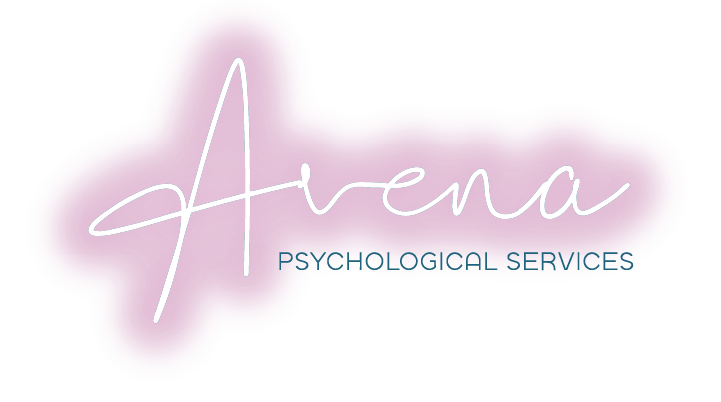You just wanted to check the headlines. Just five minutes. Just to stay informed.
But now it’s an hour later, your chest is tight, your mind’s racing, and your mood has completely plummeted.
War. Injustice. Climate. Economics. Loss. Opinion. Outrage.
It’s no longer just a news update—it’s emotional whiplash. And in the age of 24/7 access, the constant news cycle can quietly take over your mental health before you even realize it.
At Avena Psychological Services, we work with people who want to care, stay informed, and engage with the world—but who also feel completely exhausted by it.
So if you’ve ever asked yourself, Should I unplug? Should I keep reading? Am I doing enough? Or am I drowning?—you’re in the right place.
Let’s talk about how to balance being informed with being well, especially when the constant news feels like too much.
What is the feeling you get when you hear bad news?
You know that sinking sensation? That pit in your stomach, the quickening heart rate, the wave of dread that washes over you when you read about something tragic or unjust?
That’s your nervous system reacting to perceived danger. Even when the threat isn’t personal or immediate, your brain doesn’t always know the difference.
The feeling you get when you hear bad news might include:
- Anxiety or restlessness
- Sadness or emotional heaviness
- Physical symptoms (like a racing heart, nausea, or tight chest)
- Numbness or emotional shutdown
- Guilt—especially if you feel “helpless” or like you should be doing more
This is what happens when you’re exposed to constant news—your body keeps getting pulled into fight-or-flight mode, even when you’re just sitting on your couch.
It’s not weakness. It’s not overreacting. It’s your body trying to process far more than it’s wired to handle.
How do I stop constantly checking the news?
If you’ve ever found yourself refreshing headlines like a reflex—or spiraling through updates long after you meant to put your phone down—you’re not alone.
The constant news cycle is designed to hook your attention. It plays on urgency, fear, and curiosity. And once it becomes a habit, breaking free feels nearly impossible.
But you can begin to reclaim your attention, slowly and gently.
Here’s how to start:
- Name the habit. Say it out loud: “I’m constantly checking the news.” Not to shame yourself, but to notice the pattern.
- Notice the trigger. Are you bored? Anxious? Lonely? Often we reach for constant news as a way to soothe or distract—but it backfires.
- Set specific check-in times. Choose one or two moments a day (like after lunch or early evening) to read the news. Outside of those times? Stay off apps or mute notifications.
- Use “digital buffers.” Put a sticky note on your phone or set up a screen-time limit. Create a pause before you scroll.
- Replace, don’t just restrict. If you’re breaking a news habit, replace it with something soothing: a podcast, a walk, a playlist, a phone call.
You don’t have to quit cold turkey. You just need to build awareness—and offer yourself something better in return.
How to deal with constant bad news?
The hard truth? Sometimes the news is bad. Really bad. And if you’re someone who feels deeply—about people, the planet, injustice—it makes sense that the constant news cycle weighs heavily on you.
So how do you hold your empathy without drowning in despair?
Try this:
- Acknowledge the impact. Say, “This is hard for me to hear.” Give yourself permission to feel the weight.
- Balance consumption with action. If something deeply moves you, take one small step—donate, sign, call, share, rest. Action can help process helplessness.
- Limit repetition. Seeing the same horrific headline ten times a day doesn’t help. Read it once from a trusted source, then step away.
- Curate your feed. Follow accounts that bring nuance, solutions, or hope—not just doom. Your input matters.
- Talk about it. Don’t keep it inside. Share what you’re feeling with a friend, therapist, or journal. Naming the pain gives it less power.
Remember: caring doesn’t mean collapsing. You can care deeply and protect your mental health. The two are not mutually exclusive.
Why does the news affect me so much?
If you’ve ever wondered, Why does this hit me harder than everyone else?—you’re not alone.
The constant news cycle affects people differently, and several factors might be at play:
- High empathy or sensitivity – You’re wired to feel deeply, especially when others are suffering.
- Personal history or trauma – News stories can trigger unresolved pain or fear.
- Mental health challenges – If you live with anxiety, depression, or PTSD, news overload can worsen symptoms.
- Perfectionism or responsibility – You might feel like it’s your job to stay informed, be prepared, or fix everything.
At Avena, we remind clients of this often: you’re not too sensitive. You’re paying attention. But if the constant news is making it hard to eat, sleep, connect, or function, that’s a sign your nervous system needs support.
You can still be informed. But you don’t have to be consumed.
So… should I unplug?
Here’s the question we hear all the time: If I unplug, am I just ignoring what’s happening? Am I checking out when I should be leaning in?
And here’s the answer: No. You’re regulating.
Unplugging—even temporarily—isn’t ignorance. It’s stewardship. It’s how you care for your mind and body so you can show up for what matters.
So if the constant news is draining your hope or deepening your depression, it’s not only okay to step back—it’s necessary.
Try a 24-hour break. Notice how you feel. Come back when you’re ready, with intention—not compulsion.
Your mental health is not a distraction from what’s going on in the world. It is part of the work. You deserve rest, too.
Final Thoughts: You’re Allowed to Step Away
There’s a myth that staying informed means staying constantly plugged in. But your brain wasn’t built for endless updates. Your heart wasn’t meant to carry every tragedy alone.
If you’ve been struggling with the emotional toll of constant news, know this:
You are not weak for being overwhelmed.
You are not selfish for protecting your peace.
You are not disconnected because you need distance.
At Avena Psychological Services, we support people navigating the tension between caring deeply and burning out quietly. You can love the world, fight for justice, show up for others—and still unplug when your soul needs quiet.
So the next time you feel that impulse to scroll, pause. Breathe. Ask yourself: Do I need more information—or more compassion?
And choose the one that keeps you whole.
Meet The Therapists You'll Work With & Get Scheduled Today!

Michael Cruz, LMHC
Licensed Mental Health
Counselor – NY

Luisa Enriquez, LSW
Licensed Social Worker – NJ

Katalin Vinczi-Sierra, LCSW
Licensed Clinical Social Worker – NJ
Contact us to schedule an appointment with a professional in New York or New Jersey.

